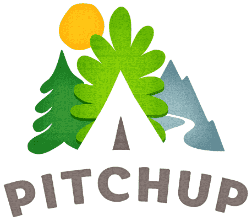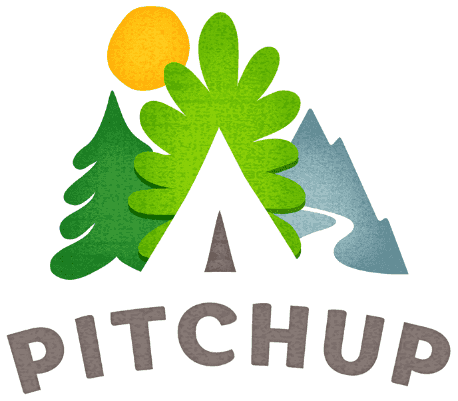Facts and figures
We've collected some facts and figures about the UK camping and caravan market below. For information about Pitchup.com, visit our about us page, join page or see our guide to how to set up a campsite or caravan park.
The UK market
- In 2019, UK residents took 13.1m holiday trips camping and caravanning, spending £2.2bn during their trips (source: GBTS). By contrast, they made 13.8m holiday trips to Spain, 6.0m to France, 3.1m to Italy and 2.3m to Portugal (source: IPS). Overall, 51% of holiday trips were taken domestically and 49% abroad.
- Of the 13.1m trips, 43% were spent in static caravans, 31% in touring caravans, motorhomes and campervans, 23% tent camping and 4% glamping
- In 2019, some 55m holiday bed nights were spent in caravans, tents, glamping and motorhomes by GB residents. The accommodation category receives more 6% more nights than hotel/motel, 23% more than 'built' self-catering and 364% more than guest house/bed and breakfast (Source: GBTS)
- In 2019, average trip length was 4.2 nights and average spend per trip £168 per person, and £40 per person per person for domestic camping and caravanning holidays (source: GBTS)
- Around one-quarter of holiday parks and campsites are open all year round (source: Pitchup.com)
How long is the average camping trip?
Average trip length in 2019 was 4.2 nights in the UK (source: GBTS)
The European market
- Overall 420m nights were spent camping or caravanning by EU residents in 2019, of which the UK accounted for 59 m, France 129m, Italy 55m, Spain 41m, Germany 36m and Netherlands 22m (source Eurostat)
- There were 587m days spent camping by Americans in 2016 (source: Outdoor Industry Association)
Holidays abroad by UK residents
By trips (in '000s) or By spend (in £'000s)
chart
The 'staycation'...
- 57% of British residents' holiday trips took place domestically in 2015, compared to 53% in 2008 (source: VisitEngland)
- The number of foreign holidays taken by UK residents was 7% lower in 2015 than in 2008 (source: IPS)
- UK registrations of new motorhomes rose by 10.6% in the 2015 season (September 2014 - June 2015), with motor caravans rising 22.3% (source: European Caravan Federation)
A permanent shift?
- There are signs that a more permanent shift in attitudes is occurring, with almost half the population (and 70% of staycationers) expecting that beyond 2010 they will take more holidays in the UK than they have in the past (source: VisitEngland)
Other trends
90% of
stayca/oners expect to take at least one England break in 2010 – the 2009 experience has improved
opinions of holidaying at home for many, and le them keen to discover more, though this may mean
taking shorter breaks rather than a longer holiday.
The con/nued impact of the recessionmeans that some will have to take domes/c breaks again in 2010 for
financial reasons, but there are signs that a more permanent shi in a1tudes is star/ng to happen, with
almost half the popula/on (and 70% of stayca/oners) expec/ng that beyond 2010 they will take more
holidays in the UK than they have in the past.
- Camping and caravaning is green, cheaper and takes less time than foreign travel. For a typical journey comparison, a family would save 8.6 hours of travel time, spend 92% less on transport costs, and save 95% of their CO2 emissions - enough to brew 80,472 cups of tea
- Adult-only camping and caravanning is on the rise. Between 2006 and 2010 the number of domestic camping and caravan trips in England taken without children rose from 44% to 50% (source: VisitEngland)
- There was a 50% increase in 'glamping' sites listed on Pitchup.com in 2011
- Bookings are being made later for shorter holidays closer to home. In 2012, 44% of bookings on Pitchup.com were for within one week of departure, with an average stay of three nights
- Camping and caravanning is moving upmarket, with the AB category growing from the smallest customer segment to the second largest between 2006 and 2009 (source: UKTS)
- Activity holidays increased by 13% between 2004 and 2008 (Source: Mintel)
- eFestivals listed just 12 music events in 2000. Pitchup.com now lists 500 events
Greater willingness to book online
- According to VisitEngland, 60% of advance bookings for domestic holidays were made online in 2010. The number of domestic online bookings grew by 65% between 2006 and 2010
- Online booking is available at only 28% of camping and caravan sites, compared to 79% of hotels and 36% of guest houses and B&Bs (source: VisitEngland)
- In 2010 Center Parcs reported that over 70% of its bookings are made online
Celebrities and quirky camping
- At £9,600 for two for a four-night stay, Britain's most expensive campsite is believed to be Camp Kerala in Shepton Mallet, near Glastonbury. The cost includes interstage festival tickets and Winnebago access, food and concierge (it's £900 extra for an ensuite toilet, and visitors pay extra for drinks, spa treatment...and helicopter transport)
- A three-bedroom caravan at Abersoch, North Wales - complete with underfloor heating and a luxury Italian kitchen - was sold for £550,000 to a millionaire couple in December 2010
- Richard Hammond of Top Gear fame has published a book – a Short History of Caravans – and has destroyed 56 caravans during his time on the show
- Images of Kate Moss, Sienna Miller, Jamie Oliver and Jodie Kidd on camping trips have made camping cool again. However, celebrities have also driven a new trend in luxury camping
- Tom Cruise and wife Katie Holmes have taken camping holidays both as a family this year and previously before the birth of their daughter Suri
- Designers including Ted Baker and Cath Kidston have created stylish tents ranges. Many campsites now offer tipis, wigwams and yurts (Mongolian-style domed tents)
- UK TV programmes have increased the interest in UK camping and caravanning holidays including Coast, Rick Stein’s Food Heroes, BBC 4 Documentary Caravans – A British Love Affair and Julia Bradbury’s Railway Walks. The Caravan Channel is available four days a week from 7pm on Sky 166 and Freesat 406
- The Kabes Royal Tower at 4.5m is the tallest caravan you can buy, with two storeys and a balcony

